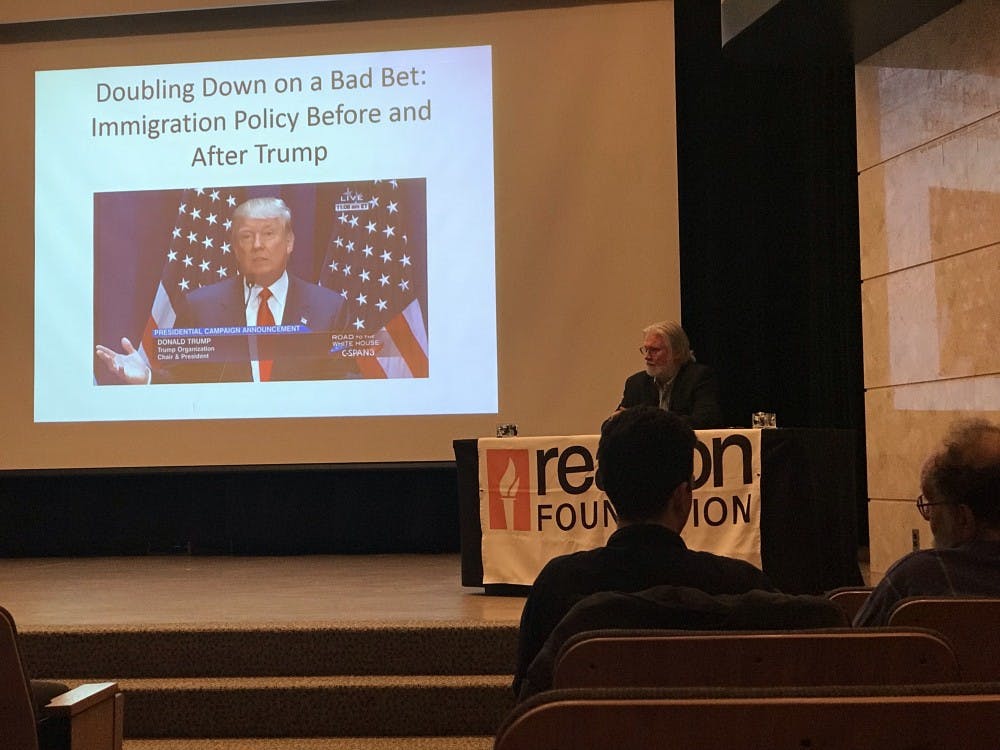Douglas Massey, a sociologist and a professor at the Woodrow Wilson School of Public & International Affairs at Princeton University, focuses on issues of immigration, segregation and demography. On Thursday night, Massey spoke on MSU's campus about immigration policies of past presidential administrations as well as current policies.
As the keynote speaker for The LeFrak Forum and Symposium on Science, Reason, and Modern Democracy, Massey’s lecture, "Doubling Down on a Bad Bet: Immigration Policy Before and After Trump,” touched on issues such as building President Trump’s infamous border wall and how we arrived at an “immigration crisis."
Massey first touched on policies enacted when former president Ronal Reagan was in office.
“In 1986, Ronald Reagan signed the Immigration Reform and Control Act, which began what would prove to be a multi-decade process of border militarization,” Massey said.
This concept of militarization is the increased amount of money spent policing our southern borders, Massey said.
At one point in the presentation, Massey brought up a slide pointing out how, from 1986-2017, the United States government spent just shy of $62 billion. That amount has been adjusted to reflect inflation.
“There’s a huge jump in the number of deaths after 1993 and 1994,” Massey said. “Now there are very few people crossing the border, but the number of deaths crossing the border is not going down in any corresponding way.”
According to the studies Massey presented, his assumptions are that violence will only increase with an increase of pressure at the border region.
Even with policies enacted to be stricter with border control, there has been little to no effect on the rates of apprehension at the border, Massey said.
“If you look at it, 2017 is the very lowest level ever (of apprehension rates) in modern American history,” Massey said.
Massey spoke on how, in his eyes, this is a humanitarian issue and not one of immigration.
Massey displayed statistics showing that the number of people immigrating from Mexico is much smaller than the number of people immigrating from other Central American countries like Honduras and Venezuela.
“What used to be a flow of male laborers, with some female and child dependents, crossing the border for work in the United States, has now been replaced entirely almost by a population of women and children not coming across to work, but to escape terrible conditions,” he said.
Over the course of his talk, Massey touched on how, if he could have things his way, he would make it much easier for the 11 million Mexican immigrants who have been living and working in the U.S. to attain permanent citizenship.
As a critic of President Trump’s proposed border wall, a project that could cost over $20 billion, Massey thinks that even a “small portion of that money” could enact real change in immigration rather than building the wall.
Some of his ideas were to implement things such as a refugee asylum program, or the aforementioned system to make it easier for those who have been here for 15 to 20 years to finally get citizenship.
Support student media!
Please consider donating to The State News and help fund the future of journalism.
Discussion
Share and discuss “Douglas Massey discusses immigration policy changes in U.S. at lecture” on social media.







